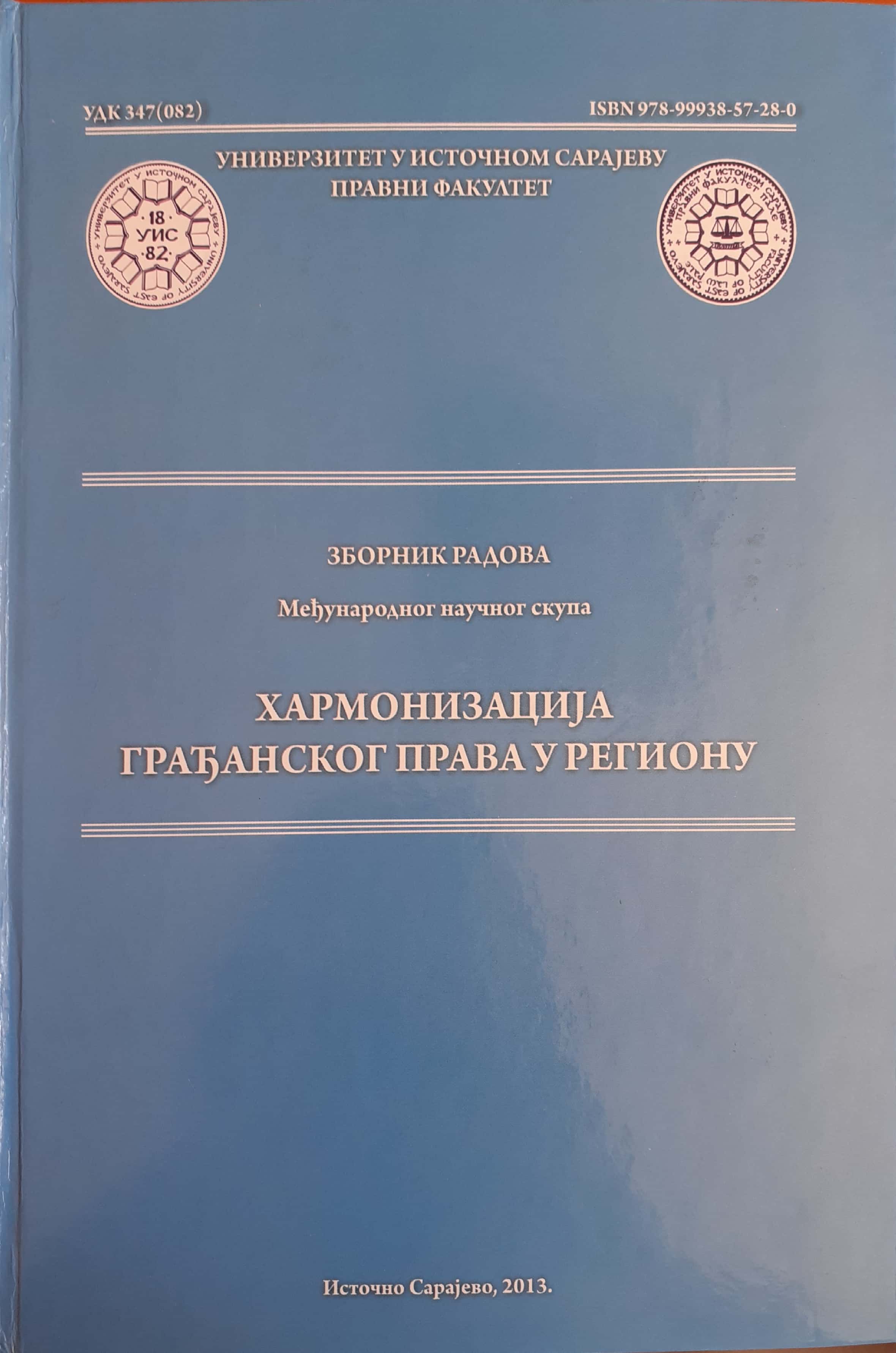Значење појмова унификације, кодификације и хармонизације правних прописа
Meanings of the Concepts of Unification, Harmonization and Codification
Author(s): Sava Aksić
Subject(s): Law, Constitution, Jurisprudence
Published by: Правни факултет Универзитета у Источном Сарајеву
Keywords: Unification;Codification;Harmonization;Nation;Legal brunch;System of law;Law;Validity;Logical connection;Legal solution;Worth;Source of law;
Summary/Abstract: Concepts of unification, codification and harmonization of legal regulations are sometimes in theory of law and in practice, used imprecisely.Unification of regulations is the process of their equalization by which, instead of validity of several legal systems, only one legal system appears applicable in those areas in which previous systems were applicable. Unification implies previous existence of several different legislative powers, formal legal sources and independent legal areas which then, in the process of unification, become only one legal solution.Codification signifies systematization and reconciling, in technical meaning, of regulations from one or several related legal branches. Such an essential connection between concepts already exists, thanks to which connecting those concepts makes part of valid systematic whole of legal concepts.Harmonization, as opposed to unification, represents only essential arranging of legal regulations, that is adoption of appropriate valuable judgments which exist in legal system with which harmonization is to take place. As a result of harmonization of laws, legal system is not completely equalized, but it obtains the same material originality, which means that specific characteristics, such as consequences of different national and legal history, culture, development of legal systems, still remain. Unlike unification, where instead of more then one, only one legal system occurs, by harmonization the existing legal systems do not lose their positivity, but still apply independently.
- Page Range: 205-215
- Page Count: 11
- Publication Year: 2013
- Language: Serbian
- Content File-PDF

